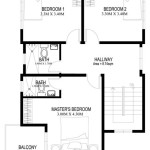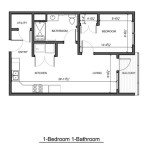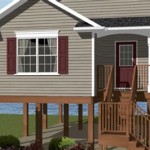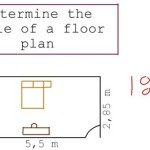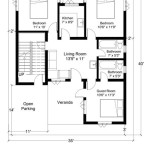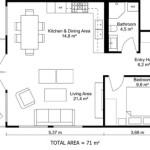The Benefits of House Plans With Attached Garages
House plans incorporating attached garages have become increasingly popular in modern residential construction. This design trend offers a confluence of convenience, security, and aesthetic appeal that resonates with contemporary homeowners. An attached garage represents a significant departure from detached structures, providing tangible advantages that enhance both the livability and the overall value of a property. Understanding these benefits is crucial for homeowners and prospective buyers alike when considering various home design options.
The integration of a garage directly into the main structure of a house creates a seamless transition between the vehicle storage space and the living areas. This contrasts sharply with detached garages, which often necessitate traversing outdoor elements to access the home. The convenience factor alone makes attached garages a worthwhile consideration, especially in regions characterized by inclement weather.
Beyond mere convenience, attached garages offer enhanced security features and potential cost savings in construction and maintenance. The design also impacts the overall aesthetic of the house, potentially boosting its curb appeal. This article will explore the multifaceted benefits of house plans with attached garages, providing a comprehensive overview of their advantages.
Enhanced Convenience and Accessibility
One of the most prominent benefits of house plans featuring attached garages is the unparalleled convenience they provide. In adverse weather conditions like rain, snow, or extreme heat, the ability to enter the house directly from the garage eliminates exposure to the elements. This is particularly advantageous for individuals with mobility limitations, young children, or those carrying groceries or other cumbersome items.
The attached garage also streamlines daily routines. Tasks such as retrieving items from the car or loading and unloading belongings become significantly easier and faster. This is especially beneficial for busy families constantly on the go. Furthermore, the proximity of the garage to the house provides quick and easy access for storing seasonal items, tools, and other equipment, eliminating the need to trek across the yard to a detached structure.
In addition to personal convenience, attached garages can facilitate deliveries and services. Package delivery personnel can often leave parcels securely inside the garage, reducing the risk of theft or weather damage. Service providers, such as plumbers or electricians, can also access the garage easily for maintenance or repairs related to the property's systems.
The internal access from the garage to the house also offers a safety element. In situations where residents need to quickly enter the home without being exposed to the outside environment, the attached garage provides a secure pathway. This is particularly relevant in areas with high crime rates or concerns about personal safety.
The convenience factor extends to vehicle maintenance as well. Having the garage attached to the house allows easy access to tools and equipment needed for routine car care. Simple tasks like checking fluid levels or changing a tire become less of a chore when the necessary resources are readily available.
Improved Security and Safety Considerations
Attached garages provide a significant boost to home security compared to detached options. The direct connection to the house reduces the potential for unauthorized access to the property. The garage door serves as an additional layer of protection, deterring potential intruders from entering the home through this vulnerable point.
Many attached garages are equipped with internal doors leading directly into the house, often into a mudroom or utility area. These doors can be reinforced with deadbolts and other security features to further enhance protection. This setup allows residents to monitor activity within the garage from inside the house, providing an added layer of security and peace of mind.
Beyond burglary prevention, attached garages also improve safety by providing a sheltered space to load and unload vehicles. This reduces the risk of slips and falls, especially during inclement weather. The enclosed garage also offers protection from potential hazards like falling tree limbs or extreme weather events.
Fire safety is another crucial consideration. While garages can be potential fire hazards due to the presence of flammable materials and vehicle fluids, attached garages often incorporate fire-resistant materials and firewalls to minimize the risk of a fire spreading to the main house. It is essential to ensure that the door connecting the garage to the house is a fire-rated door and that smoke detectors are properly installed and maintained in both the garage and the adjacent living areas.
Furthermore, an attached garage can be integrated with the home's security system, allowing for remote monitoring of the garage door status and activity. This feature provides additional security and control, allowing homeowners to remotely close the garage door if it is accidentally left open or to receive alerts in case of unauthorized access.
Potential Cost Savings and Added Value
While the initial cost of constructing a house plan with an attached garage may be higher than that of a house with a detached garage or no garage at all, the long-term financial benefits can be substantial. One significant area of potential cost savings is in construction itself. Sharing a wall with the primary dwelling can reduce material and labor costs compared to building a completely separate structure.
Furthermore, attached garages can contribute to energy efficiency. The shared wall between the garage and the house can help insulate the living space, reducing heating and cooling costs. This is especially true if the garage is properly insulated and the door connecting the garage to the house is well-sealed.
Attached garages can also increase the overall value of a property. They are a desirable feature for many homebuyers, adding to the home's curb appeal and functionality. In many markets, homes with attached garages command higher resale prices than comparable homes with detached garages or no garages at all.
Insurance costs may also be lower for homes with attached garages. Because the garage is considered an integral part of the house, it may be covered under the homeowner's insurance policy, potentially eliminating the need for a separate insurance policy for a detached garage. However, it is crucial to review the specific terms and conditions of the insurance policy to determine the extent of coverage.
Finally, an attached garage can provide additional storage space, reducing the need for off-site storage rentals. This can result in significant cost savings over time, as well as the convenience of having easy access to stored items. The garage can also be utilized as a workspace for DIY projects or hobbies, further enhancing its value and utility.
In conclusion, house plans with attached garages offer a multitude of benefits that extend beyond mere vehicle storage. The convenience, security, and potential cost savings make them an attractive option for homeowners seeking to enhance their quality of life and increase the value of their property. When considering home design options, carefully weighing the advantages and disadvantages of attached garages is essential to making an informed decision that aligns with individual needs and preferences.

Garage House Plans Apartments Living Quarters Adus

New Popular House Plans With Detached Garages Dfd

Building A Garage Placement And Size Specifications The House Designers

Garage House Plans Apartments Living Quarters Adus

Spacious 4 Car Garage House Plans That Wow Dfd

End Attached Garages Now A Manifesto

Garage House Plans Apartments Living Quarters Adus

Practical Styles Of Angled Garage House Plans The Designers

One Story Duplex House Plans With Garage In The Middle Blog Dreamhomesource Com

Plan 30505 Garage One Car With Attached Carport Cove
Related Posts


